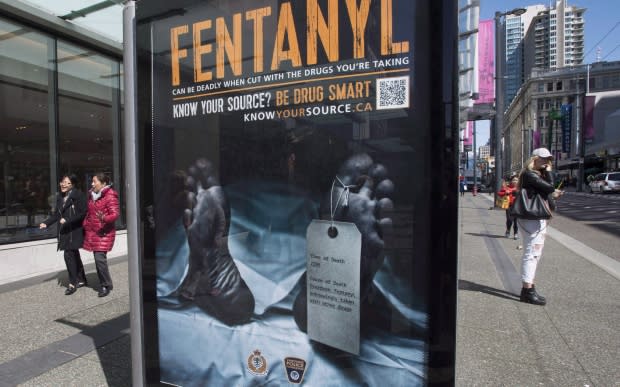Alberta looks for 'outside the box' solutions to battle opioid crisis

Alberta is closely watching a pilot program in B.C. as a possible next step to battle the opioid crisis, says Elaine Hyshka, co-chair of Alberta's opioid emergency response commission.
Under the B.C. program, people with opioid addictions are provided with pharmaceutical alternatives, with the intent of reducing their reliance on the "highly toxic illegal drugs that are in circulation" on the streets, said Hyshka, an assistant professor at the University of Alberta's school of public health.
Health services are also provided to people in the program, she said.
Alberta is "watching closely how that proceeds" and will consider the potential for a similar program to try to reduce the death rate in the province, Hyshka said.
Two people die every day in Alberta from opioid overdoses, she said.
"To really make a dent in the death toll we need to continue the work we're doing, but also to try new initiatives," Hyshka said Wednesday.
A report released by Health Canada this week shows that on average 11 Canadians die each day from opioid overdoses, and most of those deaths are linked to fentanyl.
Alberta and B.C. are the worst hit provinces in the country, the report said.
Is regulating drugs the answer?
Regulating illegal drugs, rather than keeping them underground, is part of the solution, said Marliss Taylor, director for the Edmonton harm-reduction program Street Works.
"Regulation would make more sense to me than us trying to stop people, or throw them into jail, or drive people deeper into the shadows," Taylor said.
Most of the deaths in Alberta are linked to fentanyl, Hyshka said. Because demand is high, plenty of fentanyl is being sold on the streets.
Hyshka said black markets in other provinces are increasingly being saturated by fentanyl.
"So I don't think it's unrealistic to expect that other provinces will continue to see growing death rates, and that they will eventually be as hard hit as we have been," Hyshka said.
The main message to take from the latest national statistics is that more needs to be done, she said.
"The progress we are making is promising," Hyshka said. "We need to do more, obviously, to bring down the death rate as the numbers continue to grow."

